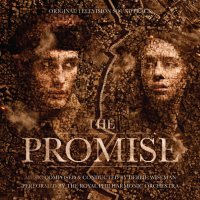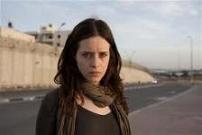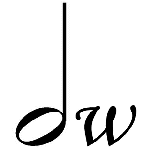Reviews – The Promise

by Sean Wilson, mFiles
The Promise is the latest heralded drama from acclaimed director Peter Kosminsky (Warriors, The Government Inspector). Claire Foy stars as Erin, a young woman retracing her dying grandfather’s past as a soldier in post-World War II Palestine. Winning praise for effectively pitting personal anguish against a backdrop of turmoil and violence across two different eras, the 4 part series received considerable notice for throwing light on complex issues, although it inevitably drew its share of criticism from both Jewish and Arab sides.
Returning to work with Kosminsky for the fifth time (following The Dying of the Light, Warriors, Innocents and The Project) was composer Debbie Wiseman. One of England’s finest home-grown composers, Wiseman has a real gift for sheer, old-fashioned melody, borne out in a lengthy and distinguished career that has seen such highlights as Haunted and Wilde. Sensibly, Wiseman takes the same angle in The Promise, cutting through the political and religious complexities of the narrative with a fully orchestral approach that humanises both the nineteenth and twentieth century conflicts and the persons caught up in them.
In a recent interview with Classic FM, Wiseman spoke of the scale of the score, and of the challenge inherent in evoking the heart of the series. To this end, the score is centred on a classic Wiseman creation for stately piano and full orchestra (The Royal Philharmonic), possessed of a somewhat bittersweet, melancholy quality entirely appropriate for the production. The use of this certifiably non-Middle Eastern instrument serves to remind us of the British protagonists at the heart of the story, but it also conveys a universal sound of sadness that can be applied to any of the characters, British, Middle-Eastern or otherwise. It is deployed fairly regularly to give a sense of backbone but even more compelling are the sections drawing on authentic, local instrumentation.
In an interview with Classic FM, Wiseman cites the use of the Oud, the Duduk and various other instruments, and she deploys them to hypnotic and compelling effect. It’s a side to the composer we don’t get to hear too often and the smooth blend of the traditional, fully orchestral sections and those more faithful to the geographical location of the series is brilliantly brought across. Wiseman never sacrifices her lyrical sense of musicality, even when the score steps into darker areas and this is one of her great strengths as a composer.
 Throughout, there is a distinct sense of musical storytelling, and never once is there a sense Wiseman is deploying the music as wallpaper. It’s a work that takes commitment and time on part of the listener (certainly more so than her more lyrical 90s works) but by the time one reaches the powerful conclusion from The Key through to Old Len, patience is rewarded tenfold. It’s further proof that an old-fashioned hand with an orchestra and a firm grasp of melody is to be savoured, and as long as professionals like Debbie Wiseman continue to treat music as music, we should praise such individuals to the highest peaks.
Throughout, there is a distinct sense of musical storytelling, and never once is there a sense Wiseman is deploying the music as wallpaper. It’s a work that takes commitment and time on part of the listener (certainly more so than her more lyrical 90s works) but by the time one reaches the powerful conclusion from The Key through to Old Len, patience is rewarded tenfold. It’s further proof that an old-fashioned hand with an orchestra and a firm grasp of melody is to be savoured, and as long as professionals like Debbie Wiseman continue to treat music as music, we should praise such individuals to the highest peaks.
This soundtrack is highly recommended.


